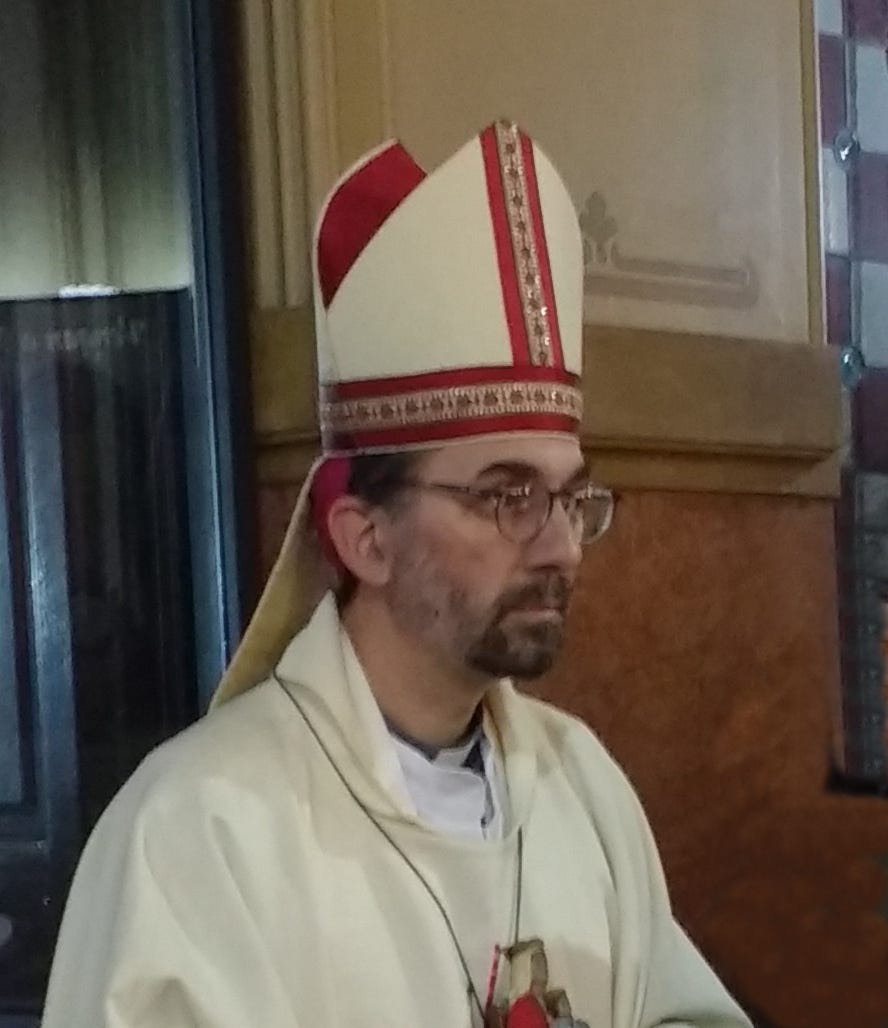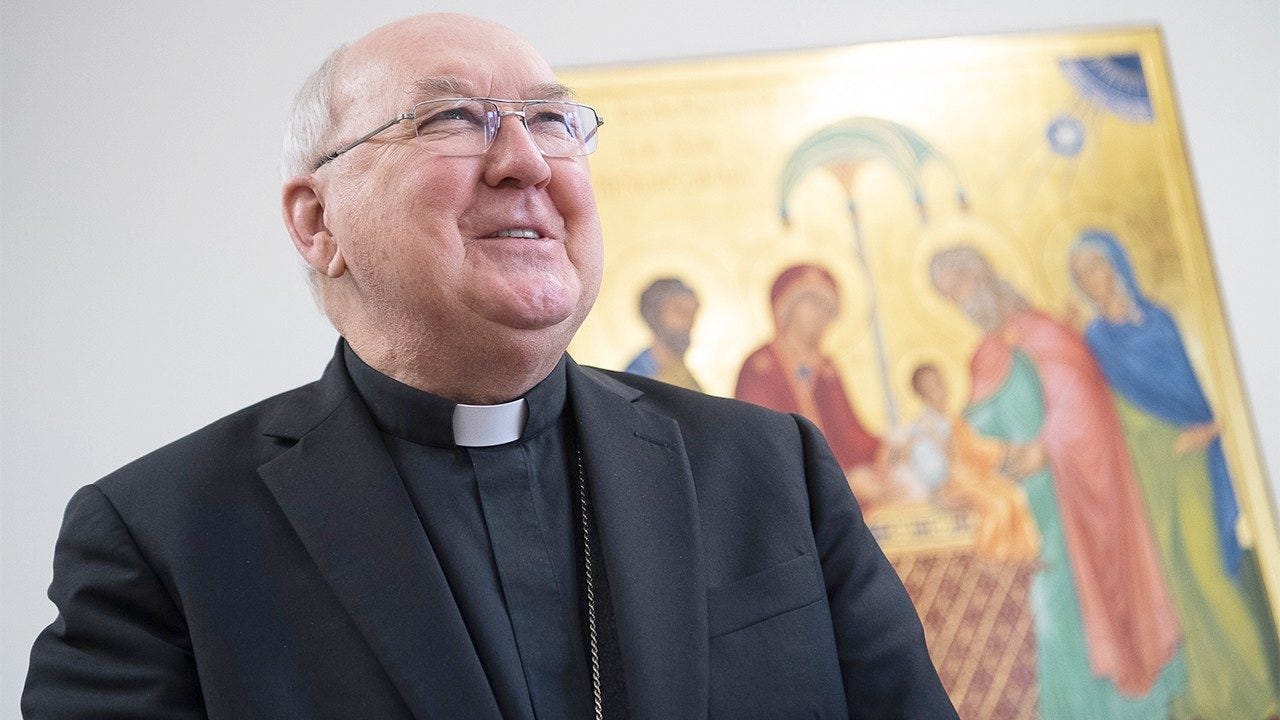In the nearly two months since the invasion of Ukraine took steam, Russian Orthodox Patriarch Kirill has planted himself ever more firmly behind President Vladimir Putin’s war.
With accounts of war crimes, massacres, and even acts of genocide emerging in the wake of the Russian withdrawal from the Kyiv region, Kirill finds himself increasingly isolated among the global Christian community, and within the Orthodox communion.
But in the midst of seemingly universal condemnation for Kirill, and his efforts to paint the Russian war effort as a kind of holy work, there is growing chatter around the Vatican that Pope Francis could be open to meeting with the Russian patriarch.
The floated venue for a second papal-patriarchal encounter, the first coming in a Cuban airport five years ago, is Jerusalem. If it happens, the invitation could be a potential lifeline for Kirill, but would present something of a gamble for the pope.
An impulse to reach out to the marginalized has been the driving force of Pope Francis’ pastoral writings, his project of a global synodal process, and his reordering of the Vatican’s curial apparatus.
That papal urge to reach out to the peripheries has, at times, seemed to override calls for caution around sensitive issues, raising questions and hackles along the way.
The pope’s efforts over the war are no exception:
An announced Vatican plan for a special thirteenth station of the cross at the Coliseum this year is set to place a Ukrainian and a Russian family together to carry the cross and has drawn fierce criticism from Ukrainians. Ukrainian Catholic bishops have pointed out that in the midst of a war producing steady and gut-wrenching accounts of cruelty by Russian soldiers to Ukrainian women and children, it might be too soon for gestures of concord.
Major Archbishop Sviatoslav Shevchuk, head of the Ukrainian Greek Catholic Church, called the plan “untimely,” “ambiguous,” and “offensive.”
In the secular sphere, the newly arrived Ukrainian ambassador to the Holy See has also made it clear he hopes the idea will be dropped.
Whatever the ecclesiastical implications of the Good Friday plan, they’re likely to be mostly internal to the Church.
But should he choose to meet with Kirill, Francis will have to judge and balance the possible reactions of people and leaders well outside his own fold.
For a start, Kirill himself may prove a willing interlocutor, but he’ll likely be keen in any meeting to appear unapologetic and certainly unimpressed by the Bishop of Rome.
Even before the current conflict, Kirrill and his predecessors have pretended to the global leadership of Christianity, describing the Moscow patriarchate as the “third Rome” — heir to the authority of that city and that of Constantinople.
Those claims were often treated as awkward hubris in ecumenical circles prior to the war, but now, with the Russkiy mir worldview in the process of taking lives, Kirill leads a Russian Orthodox Church in the process of being shunned.
Already out of communion with a growing number of his brother patriarchs, and facing spreading disaffection among his own clergy outside of Russia, Kirill now looks set to see Russian orthodoxy’s expulsion from the World Council of Churches over the use of his office to bless the invasion.
In the face of all this, Kirill might crave the international legitimacy a meeting with Francis would bring. But while popes often meet world leaders on the wrong side of an international crisis as messengers of peace, Kirill’s position as an ecclesiastical, not political leader, means that the normal expectations may not apply.
Last month, Francis and Kirill shared a video call in which the pope rejected the idea of any war being holy or just. While the context of the call was obviously Ukraine, Francis was careful to frame his comments in general, universal terms to avoid explicit finger pointing at the Russian — a maybe understandable tactic, but one which nonetheless raised questions.
Since then, Kirill has explicitly claimed that the Russian invasion force — which is leaving a trail of mass graves in its wake — is “holding back the anti-Christ.” For many Christians, ordinary faithful and patriarchs alike, that idea is tantamount to blasphemy. More widely, Kirill’s unflinching support of the Russian war effort has fueled secular skepticism of the entire Christian message.
If the pope were to meet Kirill in Jerusalem and achieve little more than a polite exchange of fraternal greetings and gifts, along with an implied agreement to disagree on the current crisis, it could be framed by many, not least in Ukraine, as the pope offering a kind of equivocation about, or even succor to Kirill’s actions — even while that would not be the pope’s intention.
A friendly or fraternal visit could provoke serious ill-feeling among the rest of the Orthodox Churches, and reduce the pope’s diplomatic ability to act as a voice of moral leadership for both peace and justice in Ukraine.
On the other hand, if Francis were to speak forcefully to the Russian patriarch, denouncing the Russian war and patriarch’s invocation of Christ in favor of it, it would almost certainly forfeit any ecumenical capital he’s amassed with Kirill since 2016, and only provoke the patriarch to double down harder on his claims that Russia is an Christian empire facing off against a hostile West.
Either outcome could be a diplomatic and ecumenical setback for the Holy See. But, on the other hand, Francis has been clear that he sees himself as the “chief evangelist” of the Church, more than a diplomatic operator.
While it is difficult to see any “good” outcome for the pope from a meeting with the Russian patriarch, it would be very like Francis to work all the harder for it anyway. The pope considers himself an apostle to the margins, and right now, few are more marginalized on the world stage than Kirill.



